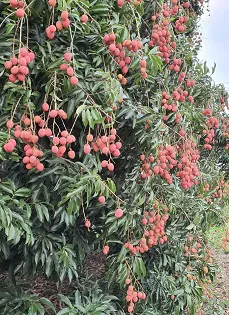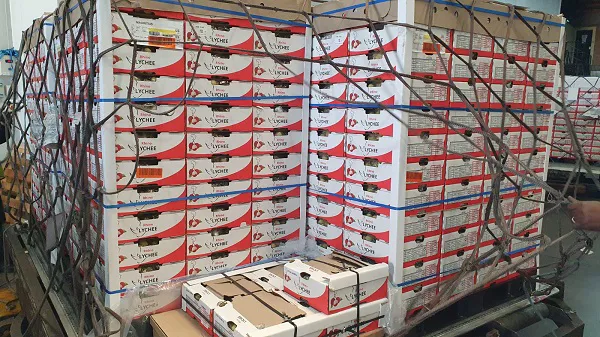 The bloodbath in the litchi season, predicted by some back in December, was never realised.
The bloodbath in the litchi season, predicted by some back in December, was never realised.
The crop was predicted to be 30% up on last year (approximately 3,600 export tonnes, but that's not final), while market conditions in Europe and specifically France were in doubt due to Covid concerns.
Consequently, traders say, the European market was underestimated and more South African litchis were sent to the Middle East instead of Europe this season.
Early litchis were excellent in all respects, colour was better than last year, with strong XXL sizing in the early season (but smaller fruit among the later crop also reduced by rain and sunburn).
Final litchis (McLean Red) are being packed and South African litchis are still arriving in Europe and the Middle East.
“There was some initial anxiety but it all went really well,” says Pierre Pieters of CoreFruit, “we’re actually a bit surprised at the results. There was a nice momentum to the litchi trade in Europe and better distribution across Europe and France.”
He adds that the UK played a bigger role in their litchi trade this season; he does not ascribe it to Brexit.
Malagasy litchis sold out before Christmas
The arrival of Madagascar’s litchis in the second week of December left a gap of ten days before the arrival of South Africa’s litchis. The South African campaign was late, to the country’s advantage because during this time Malagasy litchis were sold out in Europe, and earlier than in years, notes Wouter le Roux of It’sofresh.
“It’s been many, many years since Madagascar’s litchis were sold out just after Christmas, and this led buyers to knock on South Africa’s door for litchis just before New Year.”
Consistent US trade, despite prodigious airfreight complexities
To the USA, a five year-old market for South African litchis, the same volumes as last year were sent despite the stiff airfreight challenges of the season.
Ben Halliday of Agrilink has been opening the US litchi market, a job complicated by not being able to send fruit to New Orleans this season but instead to Atlanta, which adds four or five hours to the transport cost component of their exports.
 Air pallet of litchis for the US (photo supplied by Ben Halliday)
Air pallet of litchis for the US (photo supplied by Ben Halliday)
He notes that they would’ve liked to continue with airfreight until this week, but due to high temperatures and rain the tailend of the season was accelerated. The late fruit has been smaller and the last fruit was flown out almost two weeks ago.
”Given the high cost chain, on retrospect the fact that we were able to send the same amount of litchis as last year makes a better than expected season. Under circumstances, the product moved relatively quickly through the system.”
The decision of German retailer Lidl to remove South Africa as litchi supplier seems not to have had undue impact.
